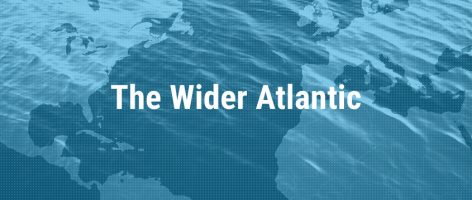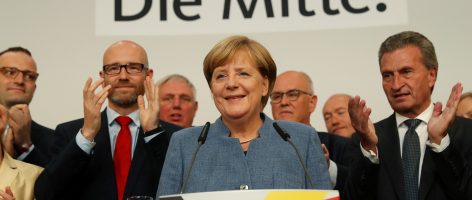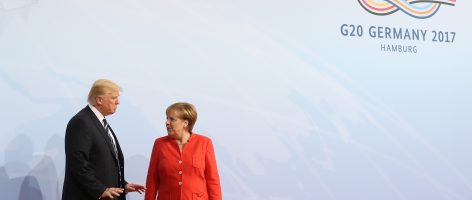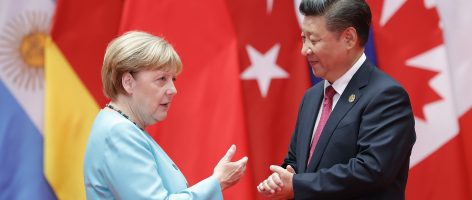
America’s Four Economic Families
The United States may have two major political parties, but it is becoming clear that it has four economic families: Small government + free trade = Mainstream Republicans Small government …

Out of Four, One? Why Germany’s “Impossible” Coalition Just Might Work
“Everything must change so that everything can stay the same.” So wrote Lampedusa in The Leopard about a Sicilian aristocracy coping with revolutions in nineteenth century Italy. But this phrase …

Voting for the Eurozone on September 24th
The German elections are just over two weeks away on September 24. Chancellor Angela Merkel is nearly certain to be reelected to a fourth term, so the main unknown surrounds …

Andreas Falke, AGSR Fellow
AGI is pleased to welcome Andreas Falke as an AGI/GMF Fellow with the American-German Situation Room in Washington, DC, in September 2017. Prof. Dr. Andreas Falke is the Chair for …

Two Cheers for the House Russia Sanctions
Energy policy is the geoeconomic tool par excellence. Whether it is the OPEC oil embargoes of the 1970s, the subsequent creation of the International Energy Agency by Western consuming nations, …
Recent Authors
AGI provides knowledge, insights, and networks as tools to solve the challenges ahead.
Support Our Work
Germany’s Number 1 Task: Renew the Global Economic Order
The most important contribution the new German Federal Government can make is to support and reform the global economic order that has been responsible for 70 years of peace and …

A Tale of Two Communiqués
During Richard Nixon’s historic 1972 visit to China, the U.S. president reportedly asked Premier Zhou Enlai what he thought about the impact of the French Revolution on history, to which …

Transatlantic Dialogue on China: Perceptions, Conflicts, and Potentials
Issue Brief 57 For both Germany and the United States, China has become a foreign policy priority: a major strategic competitor in the Asia-Pacific region for the United States, and …

Will Globalization’s Third Phase Be Like Its First?
During the world’s first phase of globalization before World War I, I had a great-grandfather who was a cigarette manufacturer in Czarist Russia. He traveled regularly to Turkey to purchase …
An Accidental Brexit – Key Insights Beyond the Snap Election
The British EU-referendum of 2016 resulted in a 51.9 percent majority in favor of Brexit. There are, however, serious doubts about whether this referendum was an orderly one. One can …
Transatlantic Investment Protections: Convergence or Sticking Point for the TTIP?
This paper is about the controversy swirling around foreign direct investment rules generally, and recent U.S. and European experiences in helping reshape their design. When this research project was proposed …
Seeking Compromise with the U.S. Instead of Conflict
While recently in Brussels, Donald Trump renewed his invectives against Germany’s trade surplus. This fits into an already quite familiar pattern: An unfriendly reception by demonstrators in Europe, major problems …



